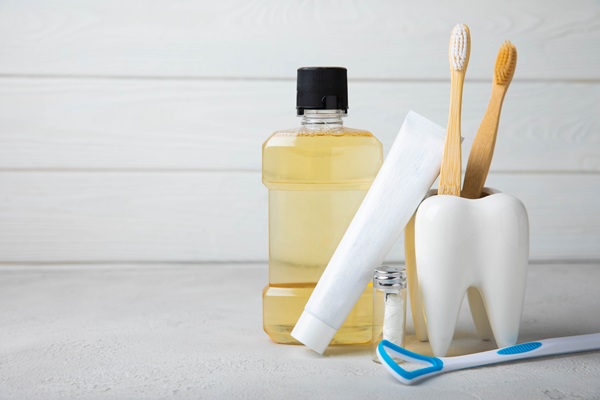Are Dental Sealants Effective Against Tooth Decay?

Proper hygiene techniques and regular dental checkups are a great defense against tooth decay, but what if they are not quite enough? Enter dental sealants. Getting tooth sealants can also greatly assist in the tooth decay battle. Continue reading for more insight into this treatment option and how it can be an effective tool for preventing cavities.
Can dental sealants help prevent tooth decay?
The short answer is, yes. The long answer is, yes, but only if and when used correctly.
Dental sealants
So what exactly are dental sealants? They are very thin plastic coverings for teeth. Dentists usually place them over the biting or occlusal surfaces of permanent or adult molar and premolar teeth. They tend to be particularly effective when placed on teeth right after they first appear, so many dentists apply them to children and teenagers rather than adults.
To place dental sealants, dentists thoroughly clean the surface of the teeth. Then, they apply an acidic solution over the area where each sealant is going to be placed. This solution helps create a slightly rougher surface on that portion of the tooth so that the sealants can more easily and securely attach to the teeth. Finally, the acidic solution is rinsed away, the tooth is dried, and the sealant is applied. Once the sealant hardens, it creates a smooth barrier over the surfaces where cavity-causing bacteria and acid like to settle.
When combined with proper oral maintenance practices and routine checkups, dental sealants can work well for many years. If and when a sealant fails or erodes, a dentist can simply replace it with a new one. This means that consistently maintained sealant treatments could potentially last a lifetime. The maintenance is not difficult either. You simply brush, floss, and rinse as you do with non-sealed teeth. You should also routinely see your dentist for status checks on your sealants and new applications when necessary.
Tooth decay
Now that you know what dental sealants are, you need to understand what tooth decay is. Two other names for tooth decay are cavities and dental caries. Whatever way you refer to it, tooth decay is damage to teeth caused by the interaction between bacteria and other substances in your mouth. This interaction creates acid that eats through your tooth enamel and forms openings that leave the inner parts of a tooth vulnerable to infection. Common culprits of cavity development are:
- Poor oral hygiene practices
- Sugary foods and drinks
- Highly acidic foods and drinks
- Starch-heavy foods
- Lack of fluoride
- Medications that weaken enamel
- Teeth-grinding habits
- Xerostomia (dry mouth)
- Tobacco products
At first, it can be difficult to recognize that you have a cavity as they may not cause any noticeable symptoms right away. Left untreated, cavities can lead to serious infections and cause discomfort, pain, bad odors, tooth loss, and more. Dentists can treat cavities using procedures such as fillings, root canals, and crowns. In some circumstances, they might even choose to remove and replace severely affected teeth entirely. The better option is to try to prevent dental caries by regularly practicing good brushing, flossing, and rinsing techniques and habitually seeing your dentist. Here, too, is where dental sealants come in.
Dental sealants vs tooth decay
While sealants do not treat tooth decay, they can be an extra helpful preventative measure against its development. Dental sealants create an additional barrier in those spaces that are especially vulnerable to dental caries. The bacteria that lead to tooth decay take time to create cavities in teeth. For this reason, they are often more successful when they hide in places that are easier to miss while brushing, flossing, and rinsing. They particularly find shelter in the crevices of molar and premolar teeth.
Molars and premolars are the two types of teeth known as bicuspids. Bicuspids consist of two or more cusps or points on the top of the tooth. These points create high and, more importantly, low points at the top of each tooth. These low spots often make the ideal places for the bacteria to hide for a long enough time to produce a cavity. Sealants are specifically designed to add extra coverage in these more vulnerable places and help prevent the decay that commonly occurs there.
Conclusion
Dental sealants can be a highly effective method for helping to prevent tooth decay. These tooth coverings work notably well when placed on the newly-formed adult molar and premolar teeth of children and teens. Cavities are not a dental issue to mess around with. Talk to your dentist today and find out if sealants are a good way to seal the deal in your fight against tooth decay.
Request an appointment here: https://stellarsmilesinc.com or call Stellar Smiles at (561) 225-2070 for an appointment in our Boca Raton office.
Check out what others are saying about our dental services on Yelp: Dental Sealants in Boca Raton, FL.
Recent Posts
Most people develop a cavity at some point in their lives, but children are especially prone to tooth decay. Dental sealants can be used to help lower the risk of getting cavities, protecting a child's teeth for many years. This supplemental treatment offers many benefits and is recommended by most dentists for virtually all children…
According to our preventive dentist and the American Dental Association, the answer to that question is every six months for most people. That is the maximum amount of time you should have between dental visits since it ensures your dentist can detect any developing problems before they cause significant damage to the structures inside your…
Routine dental checkups are just as important as brushing and flossing when it comes to oral health. Visiting a family dentist is a smart and convenient option that can provide a number of important advantages for the whole family and help to ensure you all maintain healthy teeth and gums.Some people may assume that there…
Most people are aware of the steps needed to ensure the health of their teeth and mouth. Brushing, flossing, rinsing, eating healthy, and making those all-important trips to the family dentist. The American Dental Association recommends two professional visits per year. With six months between visits, your time with your dental provider is not so…


